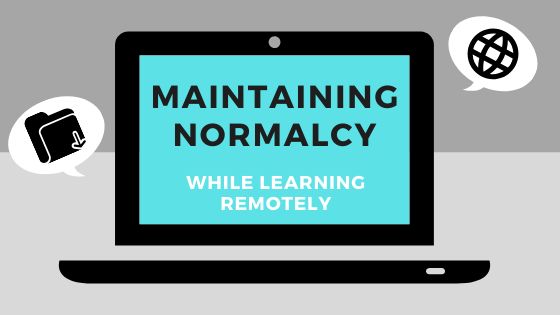I spend much of my work week reacting: responding to questions, solving problems, mediating disputes, seeking answers, tackling some goals, setting others aside, listening actively, practicing patience, adding to my to-do list. Most of this I do reflexively, without deep consideration. The result is that my brain is full of moments–unfinished conversations, looming deadlines, unwritten emails, overfull agendas, and unrealistic timetables. It can feel out of control, and that feeling manifests as physical and mental stress.
Leaders of all types — from those who head organizations, lead teams, and manage staff to those who plan programs, teach classes, and parent children — sometimes feel overwhelmed by the cacophony of other people’s needs and expectations. During the work week, everything moves so quickly, there’s rarely time to consider the impact of decisions and actions and to connect our daily tasks to our “why,” the priorities and values that guide our efforts.
So what does it take for leaders to quiet this noise and gather themselves and their thoughts so they can move from scattered and reactive to coherent and planful?
Reflective writing.
For those of you who dislike writing, hear me out.
Writing about your experiences turns down the volume and creates a quiet space where you can reconnect to your “why.” In their book Journal Keeping: How to Use Reflective Writing for Learning, Teaching, Professional Insight, and Positive Change, Danelle Stevens and Joanne Cooper remind us that humans develop through an ongoing process of meaning-making. Making sense of our experiences happens through conversations with others and with ourselves. They argue that reflective writing “can be an important tool in facilitating conversations with the self and furthers a deeper understanding of our values and beliefs” (42). Journals, diaries, daybooks, logs, or lists are spaces for self-talk. And it’s in these spaces that we can observe and make sense of our worlds.
“Writing about your experiences turns down the volume and creates a quiet space where you can reconnect to your ‘why.'”
Beyond reconnecting us to our values and beliefs, reflective writing also:
Improves Focus and Clarity
Productivity guru David Allen famously said that “your mind is for having ideas, not holding them.” By writing everything down, we clear our minds of the clutter. A clear mind is more available for creativity and positivity, more open to possibilities. In his memoir Greenlights, actor and lifelong journal-keeper Matthew McConaughey says “I never wrote things down to remember; I always wrote things down so I could forget.” Forgetting–or setting aside–the things that don’t matter makes it possible for us to attend to the things that do.
Records Your Development Over Time
Habitual journalers provide a gift to their future selves: a chronicle of their experiences. Fellow trekkies might remember Jean Luc Picard’s Captain’s log–a record of encounters, ambiguity, adversity, and resolution. Your log will reveal evolving goals, beliefs, behaviors, failures, successes, and more. This record can be tapped when working through challenges (“How did I handle this last time?”) and when there is a need for perspective. A review of your reflections can also reveal patterns of behavior, knowledge that can prompt personal change.
Helps You Prime for Spontaneity
In The Art of Framing, Gail Fairhurst explains that leaders must stay in control of the vision they frame for others, even within spontaneous communication. They do this by developing mental models, structured ideas that ground their words: “If you take the time to consciously and periodically think through your mental models as a leader, you are priming your unconscious to select and interpret new information using the models as a reference point.” Reflective writing creates private space for leaders to revisit and rehearse their mental models.
“Reflective writing creates private space for leaders to revisit and rehearse their mental models.”
Reflective writing can take many forms. In fact, it doesn’t even have to be writing. Visual journaling has a loyal following among artists and doodlers. Bullet journals combine to-do lists and reflective writing, using icons and other visuals as tools for focus. Apps like Day One allow you to record images and metadata (like weather and location), in addition to words. But the physicality and measured pace of the old-fashioned diary has significant advantages when the goal is to slow down and spend time in quiet conversation with yourself.
I think it’s time for me to give reflective writing a try. How about you?
This post was originally published as a LinkedIn article on May 27, 2021. It was inspired by the W&M Washington Center’s course Modern Leadership: Reflections and Tools for the Values-Based Leader.




 Scrolling through my social media feeds, I can’t help but notice a sudden burst in pretty twenty-somethings professing themselves to be wellness gurus, promoting some kind of “healthy” practice that “Everyone Should Add To Their Routine!” Things like yoga, meditation, vitamin supplements, and innumerable recipes using organic foods fill my screen. As someone who tries to stay holistically in-tune with her wellness, I like to try a variety of these cool things I’m seeing online. There is one approach that I have found more beneficial than any other—gratitude journaling.
Scrolling through my social media feeds, I can’t help but notice a sudden burst in pretty twenty-somethings professing themselves to be wellness gurus, promoting some kind of “healthy” practice that “Everyone Should Add To Their Routine!” Things like yoga, meditation, vitamin supplements, and innumerable recipes using organic foods fill my screen. As someone who tries to stay holistically in-tune with her wellness, I like to try a variety of these cool things I’m seeing online. There is one approach that I have found more beneficial than any other—gratitude journaling.